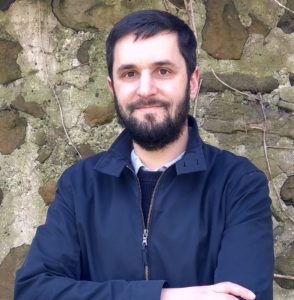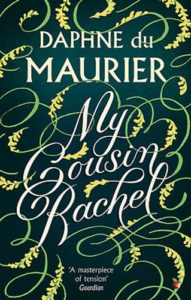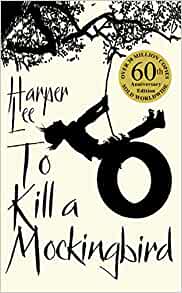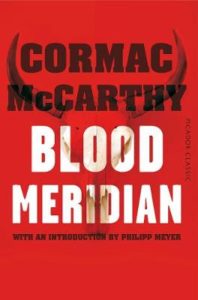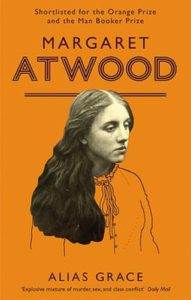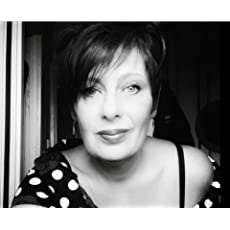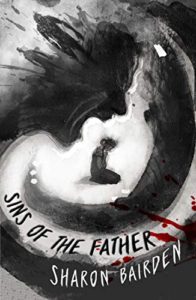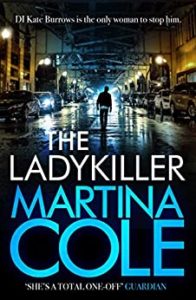A first for Decades this week as I am going to need two Curator Hats.
Each week I invite a guest to join me in my ongoing quest to add books to my Decades Library. In January 2021 I asked myself the question: If you were to fill the shelves of a brand new library but had no books, which books should you add to make sure the very best publications were represented?
Now that was far too difficult a question to answer alone so I am enlisting the assistance of booklovers (authors, publishers, journalists and bloggers) and I ask them which five books they would put into my library. However, I added an extra rule – my guests may only select one book per decade and they must select their five books from five consecutive decades. So they have any fifty year publication span to select from. Apparently this makes it harder to choose than it may sound!
Earlier this year I read a wonderful serial killer thriller: The Family Tree – it is the first novel co-authored by Steph Mullin and Nicole Mabry. The book reminded me of a discussion I had been having with my wife around DNA testing and the unforeseen outcomes which may arise from trying to trace your ancestry. In The Family Tree the protagonist (Liz) discovers she may be related to a serial killer. For clarity, I am not related to a serial killer (to my knowledge). My discussion with my wife was around charities who are helping people to cope with the trauma some people can experience when they learn their family are not their blood family.
The Family Tree was one of my favourite reads this year and as it was recently released into paperback I thought this would be a perfect opportunity to ask Nicole or Steph if they fancied taking on the Decades challenge. To my delight they were both keen to make their selections so, for the first time, I have co-authors to welcome to Grab This Book and we have ten new titles to add to the Library.
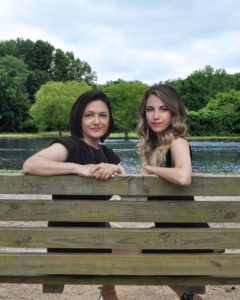 Steph Mullin and Nicole Mabry met as co-workers in New York City in 2012, discovering a shared passion for writing and true crime. After Steph relocated to Charlotte, North Carolina in 2018, they continued to collaborate creatively. Separated by five states, they spend countless hours scheming via FaceTime and editing each other’s typos in real time on live Google Docs. Steph’s dream of becoming a writer started at age six, followed by winning scholastic writing awards and crafting articles for her university literary magazine. She currently works as Creative Director for a Media, Entertainment and Digital Marketing Solutions company. Nicole works in television as Senior Manager of Post Production in the photography department. She is the author of Past This Point (2019), an award-winning apocalyptic women’s fiction novel. Past This Point was chosen as Best Book of the Year by Indies Today and won first place in the Global Thriller division of the Chanticleer International Book Awards. The Family Tree is the writing duo’s first co-authored crime novel.
Steph Mullin and Nicole Mabry met as co-workers in New York City in 2012, discovering a shared passion for writing and true crime. After Steph relocated to Charlotte, North Carolina in 2018, they continued to collaborate creatively. Separated by five states, they spend countless hours scheming via FaceTime and editing each other’s typos in real time on live Google Docs. Steph’s dream of becoming a writer started at age six, followed by winning scholastic writing awards and crafting articles for her university literary magazine. She currently works as Creative Director for a Media, Entertainment and Digital Marketing Solutions company. Nicole works in television as Senior Manager of Post Production in the photography department. She is the author of Past This Point (2019), an award-winning apocalyptic women’s fiction novel. Past This Point was chosen as Best Book of the Year by Indies Today and won first place in the Global Thriller division of the Chanticleer International Book Awards. The Family Tree is the writing duo’s first co-authored crime novel.
DECADES
My co-author and I are 18 years apart in age, so we loved the idea of doing a list like this separately, knowing our different generations would surely affect our lists.
NICOLE MABRY
I started my list in the 60’s, the decade before I was born, because it was responsible for some of the most incredible literary works of our time.
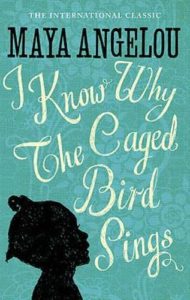 1960s: I Know Why the Caged Bird Sings by Maya Angelou (1969)
1960s: I Know Why the Caged Bird Sings by Maya Angelou (1969)
I was introduced to this autobiography in my college African American History class in 1997 and could not put it down. I read it start to finish in one sitting and those hours brought a range of emotions. It impacted me on so many levels, not just because of the important racial subject matter that I wasn’t fully aware of before this class, but also as a woman and a writer. Angelou’s writing is so beautifully elegant and lyrical that it makes the tough subject matter so much more compelling. I cried multiple times and then undoubtably sighed at the exquisite words Angelou put down on the page. I remember sitting in my dingy college apartment on my unmade bed after reading the last page and just staring off into space, my head filled with Angelou’s life and words. My only regret is that I didn’t read this book sooner. It is a book that has stayed with me over the years and the first I recommend.
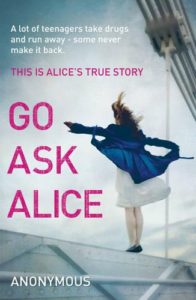 1970s: Go Ask Alice by Beatrice Sparks {as Anonymous} (1971)
1970s: Go Ask Alice by Beatrice Sparks {as Anonymous} (1971)
I was raised by a busy, full time working mom who was brilliant at finding ways to impart parental wisdom without actually having difficult conversations. For example, instead of exasperatingly telling me for the 100th time not to wander off in stores, she had me watch the made-for-tv movie Adam, the true story of Adam Walsh’s kidnapping from a shopping center. And it worked. I never left her side at stores again. When I entered my teens, even though she never needed to worry about me taking drugs as I didn’t even drink at parties, my mom gave me the book, Go Ask Alice. The book is in diary entry form and is written by an anonymous fifteen-year-old girl who falls headfirst into drug addiction. I was glued to the page, flipping them rapidly as I devoured a first-hand account of a drug fueled journey of a girl my own age–the good and the bad. To my naïve teenage self, it felt real, as though I was doing drugs alongside her, experiencing the highs and the lows that come with such a life. As I followed her through her addiction and into a more hopeful future, the epilogue delivered a gut punch that left me sitting stunned in my bedroom, anxiously looking for another chapter. Needless to say, it scared the bejeezus out of me and did the superfluous job my mother had hoped it would. But to this day, the final words of this book still haunt me.
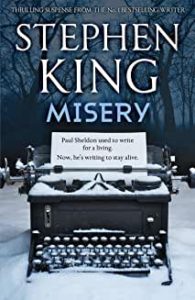 1980’s: Misery by Stephen King (1987)
1980’s: Misery by Stephen King (1987)
I’m a horror movie lover so King is one of my go-to authors. But Misery is without a doubt my favorite of his. I had watched the movie before I read the book and was certain the book could not be better. James Caan and Kathy Bates gave such incredible, unforgettable performances, I couldn’t fathom that King could top that. I was so wrong. King’s writing in this book is so visceral and each character’s reactions are so perfectly laid out that Caan and Bates had a very detailed map of what to do at each step. And even though I knew what happened, I was glued to every page. Now when I watch the movie, I can see King’s words in my head like a script for the movie.
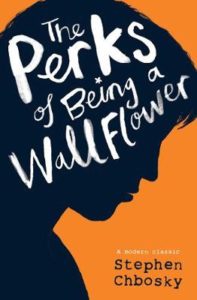
1990’s: The Perks of Being a Wallflower by Stephen Chbosky (1999)
A friend recommended this book to me and when I first got it, I looked at the slim volume skeptically. How could such a small book fully tell the story of an awkward teen navigating life and learning who he is? But within a few pages I was hooked and fully immersed in Charlie’s world. The concept and formatting were unique and drew me in. Once I got to the poem that’s deep into the book, I cried openly. I read that poem about ten times before moving on. The book is perfect, and I wouldn’t change a thing about it. I still read it once a year.
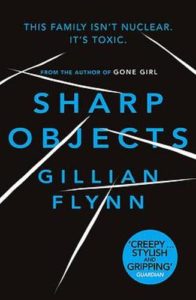
2000s: Sharp Objects by Gillian Flynn (2006)
During the 2000’s I really dug into the thriller/suspense/mystery genre that eventually led me to choose the same genre for my own writing. But I didn’t know about this book until everyone was raving about Gone Girl years later. While I liked Gone Girl, I decided to search out more by Flynn and found Sharp Objects. This has to be my favorite debut from any thriller author. Flynn created such a devious and emotional plot, and to top that off with a deliciously flawed main character just sweetened the pot. Full of twists and turns, complex, well-developed characters and an ending that will leave you gasping, this was an easy pick for the 2000s.
STEPH MULLIN
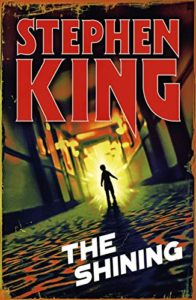 1970s: The Shining by Stephen King (1977)
1970s: The Shining by Stephen King (1977)
The Shining was my first Stephen King novel and really showed me what it was like to be a master of suspense. I didn’t read this book until my teen years, but it played a huge role in influencing the types of books I love to read…and what areas of writing I enjoy the most. Part of what I love so much about this book is the way King is able to turn the atmosphere and setting into a character in itself – the hotel playing such an integral role in the story and the torment of the characters. It so expertly blurs the lines between fantasy and reality, using masterful character development to bring out the horror and mystery woven through the pages. Now, as a writer, developing characters and atmosphere are the two areas I enjoy the most, and as a reader I love to seek out stories that execute them expertly like Stephen King.
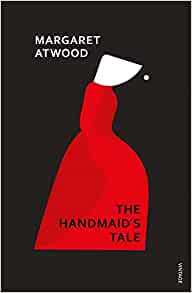 1980s: The Handmaid’s Tale by Margaret Atwood
1980s: The Handmaid’s Tale by Margaret Atwood
As I was born in 1990, The Handmaid’s Tale was a story I didn’t become familiar with until a bit later in life – however, what’s so brilliant about Atwood’s masterpiece is its uncanny ability to be relatable even decades later. Every woman who reads The Handmaid’s Tale can place themselves into the shoes of these women, feeling the terror at how close society feels at times to turning into Atwood’s world. The Handmaid’s Tale really made me take note of the political policies in today’s society as it relates to women’s rights, and to also realize that this is a timeless concern that we all feel in our bones. I normally read fiction for the entertainment and escapist value in it, but this thought-provoking book is one that sticks with me for entirely different reasons.
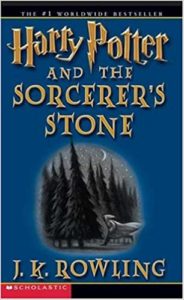 1990s: Harry Potter and the Sorcerer’s Stone by JK Rowling (1997)
1990s: Harry Potter and the Sorcerer’s Stone by JK Rowling (1997)
Harry Potter and the Sorcerer’s Stone is the first book I have a distinctive memory of reading. I was only seven years old when it came out, and I remember another girl in my elementary school had a copy and leant it to me – and I was hooked. Over the years, I aged alongside the characters as each book came out and it was something that really shaped my childhood years. I remember convincing my parents to take me to midnight book releases, staying up all night at sleepovers with friends reading through the night and refusing to sleep until we finished the book. I owe a lot of my love of reading, and ability to read quickly, to when I picked up that first Harry Potter book in the late 90s. It was the first time I really felt what it was like to escape into another world through fiction.
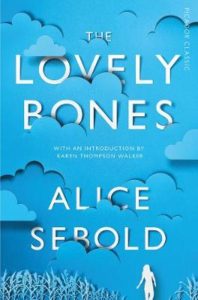
2000-2010: The Lovely Bones by Alice Sebold (2002)
The Lovely Bones was one of the first books I read growing up that was of “darker” subject matter. It was also the first book I read that was told through a unique format, the narrator being that of the young Susie Salmon, after she was murdered. Susie watches as her loved ones try to solve her murder and figure out how to move on in life without her. I was only a teenager when this book came out, and the haunting and heartbreaking narrative really struck a chord with me, paving the way for me to continue seeking out books that explored crimes and mysteries. That path The Lovely Bones sent me down is what now has manifested into a love for thrillers and true crime, and ultimately, becoming a thriller writer where one of my favorite things to consider – is unique format and storytelling perspectives.
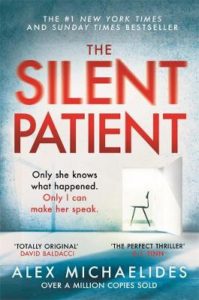 2010-2020: The Silent Patient by Alex Michaelides (2019)
2010-2020: The Silent Patient by Alex Michaelides (2019)
As an avid thriller reader and writer that takes in a lot of true crime media, it’s very hard to surprise me in a book. I’m constantly playing detective as I read, subconsciously trying to solve the mystery before the author reveals it. The Silent Patient was one of the first books in a long time to actually surprise me in the end. Masterfully crafted so that the twist reveal was unraveled by the story’s format and unreliable characters (that you didn’t even realize at first were unreliable), I delightfully didn’t guess everything Michaelides had up his sleeve and enjoyed every page-turning moment. As both a reader and a writer, this book really made me think about the way we reveal our own inner truths and I hope to one day pull off an ending with such finesse.
My thanks to Nicole and Steph for the longest Decades span I have shared (while still keeping within the rules). But we’re not quite done as Nicole added a bonus recommendation which I will also share now. As the publication was in the 1920’s it doesn’t qualify for Library inclusion but as a booklover it is in my blood to pass on a recommended title!
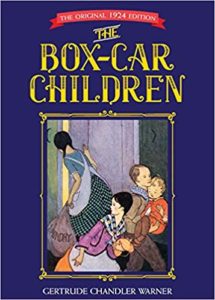 BONUS 1920s: The Boxcar Children by Gertrude Chandler Warner
BONUS 1920s: The Boxcar Children by Gertrude Chandler Warner
When I was 6, I was a very hyperactive child. My single mom didn’t know how to occupy my curious mind. My teacher had given us a vocabulary workbook for homework assignments for the entire year. I misunderstood the instructions because, being hyperactive also meant I rarely paid attention to adults, and I completed the whole workbook in one night. My exasperated teacher didn’t have any other homework for me so she said I should start reading a book a week instead. So, my mom took me to the library and told me I had to pick a book that was over 100 pages. I chose The Boxcar Children and my mom sat me down on the living room floor with a thick dictionary and my chosen book. I had to read at least 20 pages a night and if I didn’t know a word, I had the dictionary to look it up. The story, about four orphaned kids who make a home in an abandoned boxcar, captivated me instantly. This sparked a passion for stories very early on I never looked back. I became a voracious reader and a regular at the local library.
The Family Tree is published by Avon and is available in Digital and paperback formats now. Nicole and Steph have also just revealed the cover of their next thriller – When She Disappeared – which will release next year.
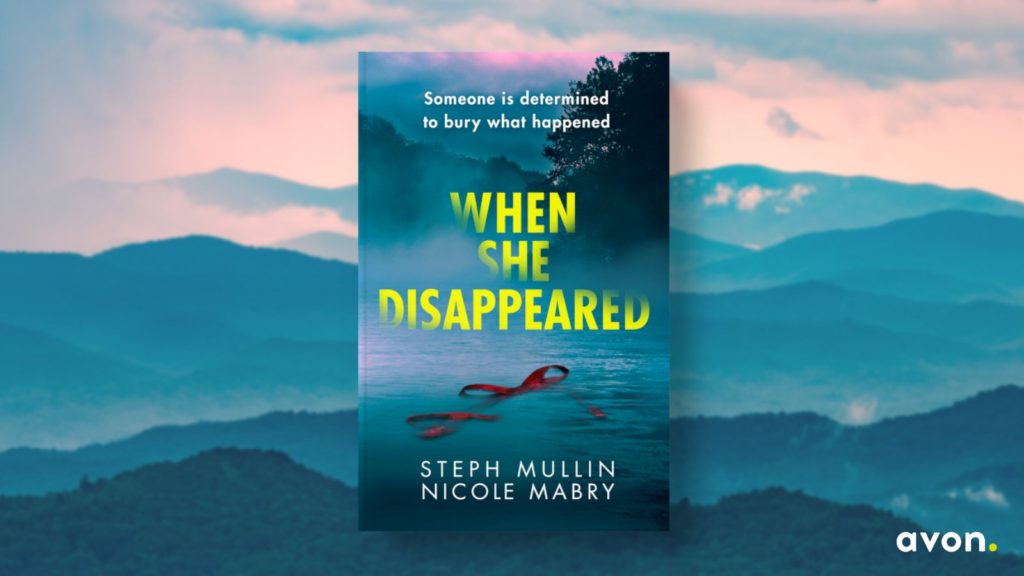
DECADES WILL RETURN
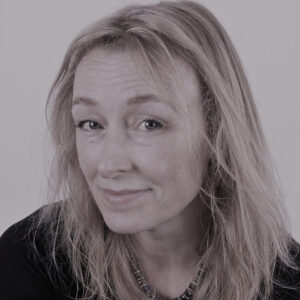 Eve Smith writes speculative thrillers, mainly about the things that scare her. She attributes her love of all things dark and dystopian to a childhood watching Tales of the Unexpected and Edgar Allen Poe double bills.
Eve Smith writes speculative thrillers, mainly about the things that scare her. She attributes her love of all things dark and dystopian to a childhood watching Tales of the Unexpected and Edgar Allen Poe double bills. The Shining, Stephen King 1977
The Shining, Stephen King 1977  The Handmaid’s Tale, Margaret Atwood 1985
The Handmaid’s Tale, Margaret Atwood 1985 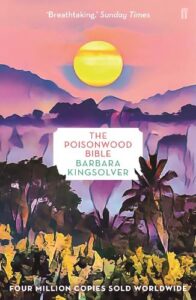 The Poisonwood Bible, Barbara Kingsolver 1998
The Poisonwood Bible, Barbara Kingsolver 1998 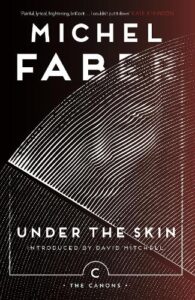 Under the Skin, Michel Faber 2000
Under the Skin, Michel Faber 2000 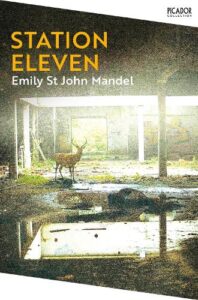 Station Eleven, Emily St. John Mandel 2014
Station Eleven, Emily St. John Mandel 2014 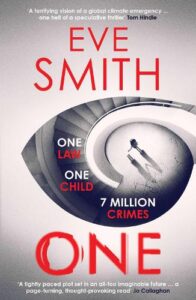 Five terrific reads to welcome Decades back. Another week where i have not read all five of the books recommended so I add two to my ever growing wishlist. Huge thanks to Eve for bringing back the Decades Library with these top reading recommendations. Don’t miss out on One – Eve’s new book – which releases in July from Orenda Books and can be ordered here: https://www.waterstones.com/book/one/eve-smith/9781914585746 or at your favourite independent bookstore.
Five terrific reads to welcome Decades back. Another week where i have not read all five of the books recommended so I add two to my ever growing wishlist. Huge thanks to Eve for bringing back the Decades Library with these top reading recommendations. Don’t miss out on One – Eve’s new book – which releases in July from Orenda Books and can be ordered here: https://www.waterstones.com/book/one/eve-smith/9781914585746 or at your favourite independent bookstore.